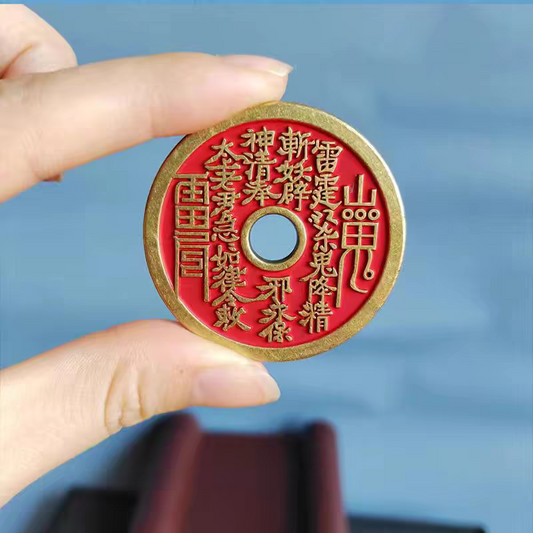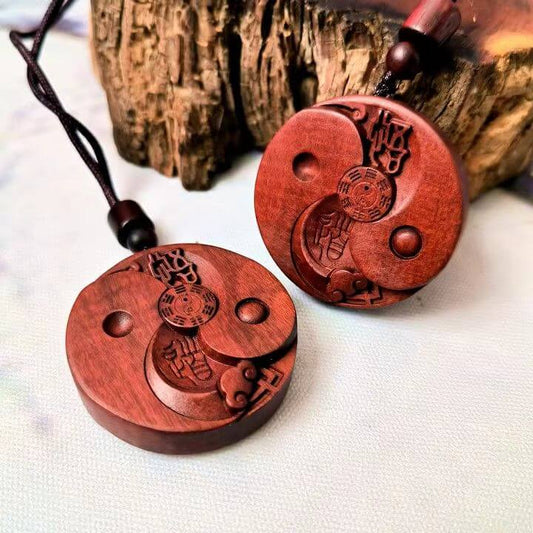
Who taught the three major magical arts in the early days of Taoism?
paulpengPartager
Taoism is a religion native to China and has been highly characteristic of Chinese native culture since its establishment. In the early days of Taoism, there were three widely spread magical arts that still have an influence to this day. These three arts are talismans, alchemy, and sexual techniques in Taoism. Do you know which three immortals taught them?

Taoists attach great importance to talismans, calling them "the spiritual writings of innocence". Therefore, the origin of talismans is often traced back to divine beings such as the Taoist ancestors in Taoism. Some say that talismans were taught by Yuanshi Tianzun, some say by Taishang Laojun, and some say they originated from the Queen Mother of the West. These are all just myths. In fact, it was Zhang Tianshi, the founder of the Zhengyi School, who organized Taoist talismans.
After attaining enlightenment at Longhu Mountain, Zhang Tianshi traveled westward into Sichuan and founded the Zhengyi School at Guming Mountain. Because believers had to pay five dou of rice to join the religion, it was also known as the Five Dou of Rice Sect. The Five Dou of Rice Sect worshiped the Three Official Emperors, who they believed were in charge of the three realms of heaven, earth, and water with different responsibilities: the Heavenly Official bestows blessings, the Water Official resolves disasters, and the Earthly Official pardons sins.
Zhang Tianshi's talismans were a combination of Taoist magic arts and the belief in the Three Officials. Specifically, whenever a Taoist disciple suffered from disasters or illnesses, the Jijiu who joined the religion would draw talismans to eliminate disasters and solve difficulties for them. These talismans were made in triplicate, one was buried deep in the ground, one was placed on the top of a mountain, and one was sunk into the water. There are many different types of talismans in later Taoism, and their roots can be traced back to this.

There is also a practice in Taoism that is considered the most orthodox magic art, namely alchemy. Ge Hong, a Taoist priest in the Eastern Jin Dynasty, said that except for alchemy, other cultivation methods have deficiencies; he believed that alchemy is the most orthodox practice in Chinese Taoism. The earliest form of alchemy in Taoism was external alchemy. That is, pills synthesized mainly from metal minerals such as lead and mercury.
External alchemy originated from the elixir of immortality of the School of Fangxian during the Warring States Period, and its source can be traced back to the immortal An Qisheng in the pre-Qin period. Legend has it that when Emperor Qin Shi Huang made an eastern tour, he met An Qisheng on the eastern seashore. An Qisheng left a message for Emperor Qin Shi Huang: "Seek me on Penglai Mountain several years later". This led to the story of Xu Fu leading hundreds of boys and girls into the sea to seek the elixir of immortality.
During the reign of Emperor Wu of the Han Dynasty, Li Shaojun, a magician, claimed to have seen An Qisheng at sea. An Qisheng gave him a huge jujube as big as a melon, and after eating it, he didn't feel hungry for several days. The golden elixir in Taoism was the predecessor of the elixir of immortality. Therefore, "Biographies of Immortals" directly states that Li Shaojun obtained the recipe of the divine elixir from Mr. An Qi. Later, Taoist priests concentrated on alchemy and no longer indulged in seeking the elixir of immortality.
There was also a special magic art in early Taoism that had a great influence. This is the sexual techniques in Taoism. The sexual techniques in Taoism originated from the immortal Rong Cheng Gong. Rong Cheng Gong claimed to be the teacher of the Yellow Emperor, and he was most proficient in nourishing and guiding, extracting essence from the mysterious female. The main secret lies in the immortality of the Valley Spirit and those who preserve life and nourish qi. Therefore, Rong Cheng Gong lived for a long time, often with his white hair turning black and his fallen teeth growing again.
Because Rong Cheng Gong extracted essence from the mysterious female, later generations all regarded Rong Cheng Gong as the founder of the sexual techniques school in Taoism. During the Wei and Jin Dynasties, sexual techniques in Taoism received great attention, and Rong Cheng Gong's reputation was at its peak. Later Taoist schools, such as the Shangqing School, opposed sexual techniques. Rong Cheng Gong's influence declined sharply.
However, then again, extracting essence from the mysterious female does not necessarily refer to sexual techniques in Taoism. The term "mysterious female" in "Tao Te Ching" is just a metaphor for "Tao" and has no meaning of sexual techniques. Rong Cheng Gong's reputation rose because of sexual techniques and declined because of it, showing that one must follow the general trend. This is what is said in "Tao Te Ching": Man follows the earth, the earth follows heaven, heaven follows Tao, and Tao follows nature.









